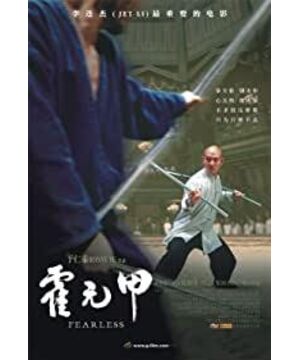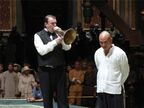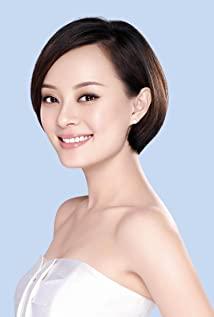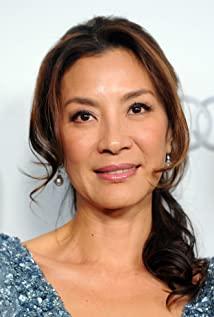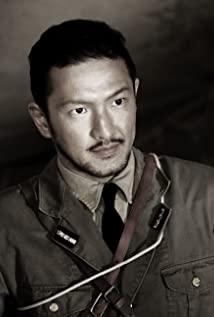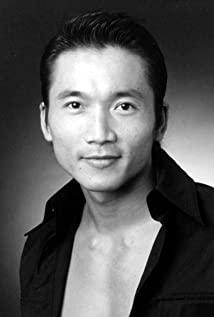When I first saw the release version of "Huo Yuanjia", I felt that although the martial arts drama is wonderful and the literary drama is smooth, this movie, which is known as the summary of Jet Li's martial arts career, did not let the audience see much depth. thinking, and the director's cut version I saw recently resolved this doubt. The 140-minute video enriches the inner drama of the characters to a greater extent, and vividly shows the audience the complete process of a warrior from being lost to returning to his original heart and realizing the peak of martial arts.
In the book "Secrets of Kung Fu Movies", the author Zhang Li uses the triple realm of "sword in the hand" and "sword in the heart" to discuss the improvement of Huo Yuanjia's martial arts realm and martial arts spirit, which has benefited a lot after reading it. Gu Long also used "no sword in hand, sword in heart" to describe Ximen Chuixue's kendo realm of "unity of man and sword". Of course, this is not the pinnacle of martial arts. The real pinnacle state is "no sword in hand, no sword in heart, No sword, no self, sword and I forget both." This is the realm that Huo Yuanjia finally realized. Here I will talk about the improvement of the life realm of the characters in the extended version of "Huo Yuanjia" and the soundness of martial arts cultivation. .
The director's extended version begins to show Huo Yuanjia's embarrassed state of falling into the trough of his life. Looking at the purse left by his deceased daughter, scenes from the past continue to emerge in his heart. The three life stages or realms of life are unfolded one by one, vivid and full of tension.
With a sword in his hand and a sword in his heart
, Huo Yuanjia in the early days was obsessed with fighting bravely, and he would sign a life-and-death contract with his opponent at every turn, trying to prove his strength through force. At this stage, whether it is his martial arts, wisdom, or mind, he is in the crazy stage of losing himself.
Competing with Zhao Jian, he was fierce and merciless. Although he could adjust his strategy in time in the face of the opponent's steady horse steps and remove the plank, Huo Yuanjia almost aimed at the key points such as the lower yin and temples when Zhao Jian used the tiger claws. Hit the opponent's crotch to win, this utterly wicked trick shows the ferocity and violence of Huo Yuanjia, who was covered by the world's red dust at this stage.
In the decisive battle with Lord Qin, the two of them gradually developed from a one-by-one fight to a brutal hand-to-hand combat. At this time, martial arts had completely lost the spirit of fighting against each other, so they replaced it with the brutal and primitive killing instinct of animals. Seeing this, I can't help but think of Tsui Hark's "Butterfly Change", "Once Upon a Time" series and other works. Mr. Xu's criticism of this senseless infighting of Chinese people, or a kind of national inferiority, is more sharp and profound.
At the same time, during this period, Huo Yuanjia devoted himself to the competition, and dealt with his family and friends in a perfunctory manner. He even accepted apprentices at will. He did not examine his character and morality at all, and he could get started with a glass of wine. It can be seen that he is more and more paranoid and extreme, and eventually leads to tragedy. Not only is he too obsessed with meaningless clouds and smoke, but also the illusion that stays on the surface of things, cannot be fully understood. It is precisely the sword in his hand and the sword in his heart that it is difficult to open his eyes and heart.
Huo Yuanjia , who had no sword in his hand and
was struck by the sword in his heart, wandered into a paradise-like village and lived with a group of simple, kind and hard-working villagers, which gave him the opportunity to get close to nature. What is worth mentioning is Huo Yuanjia's rice planting scene. He saw that the villagers around him were not only doing it easily, but also very quickly, so he reluctantly used brute force to quickly plant the rice. When the breeze blew and everyone stood quietly to feel the comfort of nature, Huo Yuanjia even showed puzzled eyes. It can be seen that at this time, he still can't let go of his attachment and utilitarian heart, he can't solve the knot of happiness, and he can't talk about it when he calms down and understands the way of nature.
The most essential part of the director's extended version is that Agui was arrested, and Huo Yuanjia was punished for Agui. At the beginning, Huo Yuanjia was blindly forbearing, determined not to use martial arts, and was beaten badly. Obviously, Huo Yuanjia, who couldn't let go of the past, chose to use self-enclosed methods to prevent repeating the same mistakes, and did not understand how to face the reality. At this time, Grandma Sun's sentence "You don't want to hurt others' lives, you can't let others hurt yours" became the finishing touch. It can be said that after hearing this sentence, Huo Yuanjia began to really think about the true meaning of martial arts, and Grandma Sun's words are precisely the most basic meaning of martial arts, that is, self-protection and protection of the people around him. So he made a defensive move, all of which were unloading, and at the critical moment when the opponent was about to be injured, he came to the rescue. When the point was reached, the conflict was resolved and the opponent's respect was obtained.
At this time, Huo Yuanjia really took the first step of comprehension, but his vision and mind were still not really open-minded. Although he had no sword in his hand, he had a sword in his heart.
Without a sword in his hand and without a sword in his heart,
Huo Yuanjia finally realized the spirit of martial arts, and the moment when his realm of life was sublimated was actually after he returned to Tianjin and witnessed the hard life of his semi-colonial compatriots. After discovering that his apprentice had become a casino thug, he bowed his head in despair. Undoubtedly, Huo Yuanjia at this time saw the consequences of his superficiality and mistakes as a teacher in the past. And when he gave "Huo Family Boxing Manual" to Zhao Jian, it meant that he let go of all enmity and narrow-mindedness, suddenly opened up, truly grew into a noble idealist, and entered into the practice of martial arts to strengthen the nation , Using the spirit of martial arts to open the master state of the people's wisdom, this is the fundamental purpose of the martial arts spirit, and it is also the ultimate concern of the martial arts life.
During this period, his words and deeds showed a grand master style and a broad-mindedness. Although the ethnic conflicts at the time were severe, Huo Yuanjia's competition with others was always on point, showing the open-mindedness of a great country's tolerance and wisdom in a calm and natural way, and even the Japanese samurai were deeply inspired and moved by it. Although there are differences in the styles of martial arts, the fundamental spirit is the same.
The establishment of Jingwu Sports Club, abandoning the view of martial arts, hopes to awaken and change the people through martial arts practice and martial arts cultivation, which is a new realm of returning to nature. At this time, Huo Yuanjia no longer has the ability and obsession in his chest, and he sets his vision on the whole China and even the world, and uses a heart of fraternity and inclusiveness to infect and stimulate the wisdom of the people. Wugong has also reached the realm where he can do whatever he wants without breaking the rules. He can change with time and respond flexibly against any opponent. The Lost Fist, which is realized from the flying dragonfly, also reflects the ancient wisdom of the unity of heaven and man in the East. At this time, Huo Yuanjia was truly "without a sword in his hand and without a sword in his heart".
Actually think about it, the so-called "there is no sword in the hand, and there is no sword in the heart", "Looking at the mountain is still the mountain, and the water is still the water", "Suddenly looking back, the man was in the dim light", and "Shushan Biography" in Enlightenment, etc. are all the same realm, referring to the return to the original after seeing the original heart, the vision and the mind are unprecedentedly widened. The same is true for the method of observing things that Lai Shengchuan talked about in his "Lai Shengchuan's Creativity", letting go of the established concepts and prejudices of things, opening up his mind and thinking, recognizing things and pointing directly to the essence.
To give a simple example, when people see the boundless sea, they suddenly feel their insignificance and narrowness at that moment. Huo Yuanjia was obsessed with meaningless infighting at first, and then he realized nature and finally woke up after witnessing suffering. This is not only the true meaning of phoenix nirvana, but also a life stage that everyone goes through.
"The Analects of Confucius" says that "at thirty, stand without confusion, at fifty, know the mandate of heaven, at sixty, and listen to one's ears, at seventy, follow one's heart's desire, and not overstep the rules." , thorough and transparent, it is not surprising that many people spend their lives confined to narrow alleys. But we really have to wait until we all have gray hair before we know how to put down the shuriken and let go of the sword in our hearts. Is it too late?
View more about Fearless reviews


